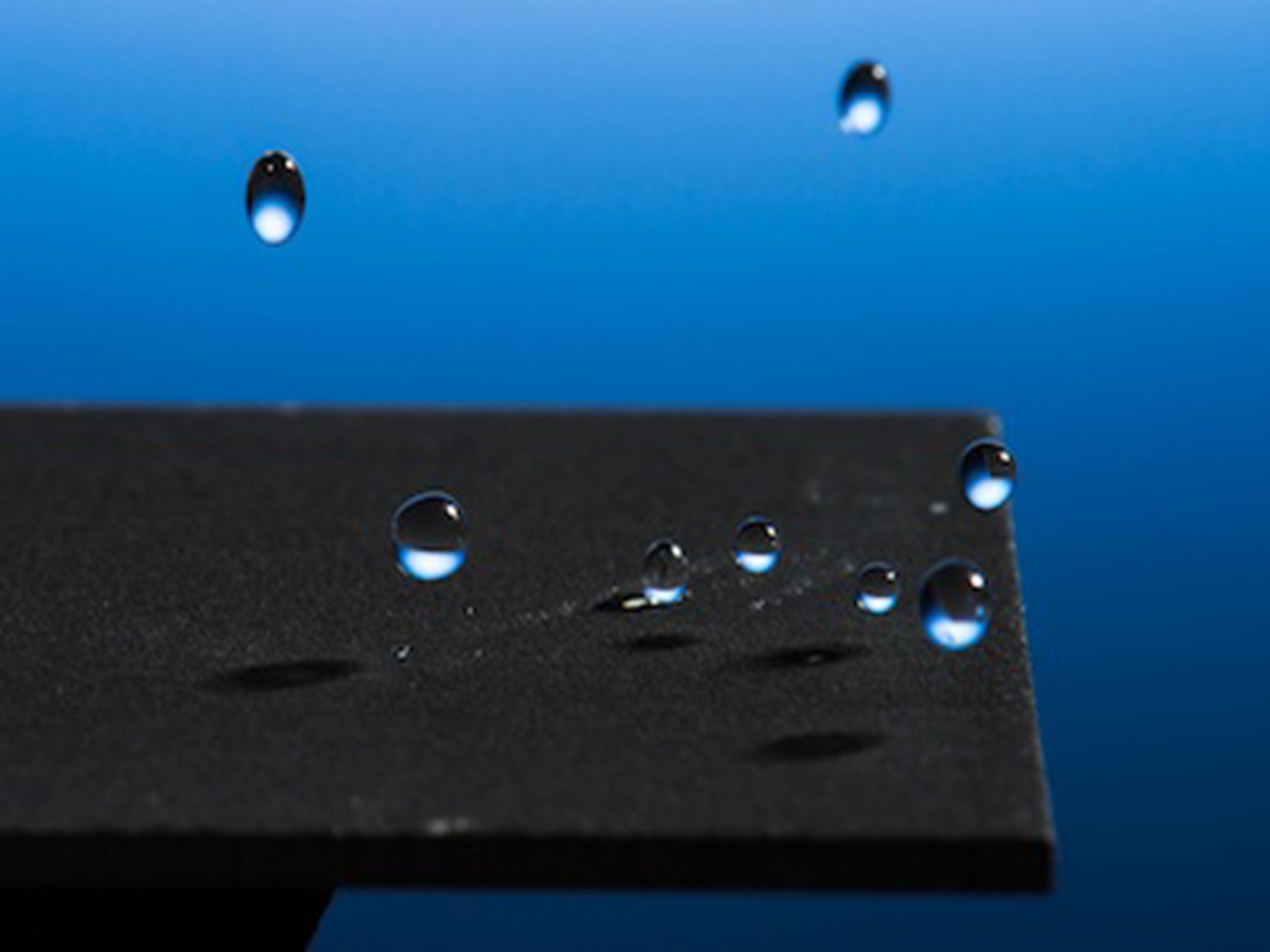Video: Fascinating new metal makes water bounce off it
Scientists say these metals could have huge implications for solar panels and sanitation

Scientists at the University of Rochester in New York have altered metals to become so water-repellent that liquid quite literally will bounce off their surfaces without the use of additional chemicals.
A video posted on the university’s website shows the new breakthrough, as well as offers an explantion of the science behind the discovery. To see the water bounce of the metal, skip to the 0:38 mark in the video.
Chunlei Guo, a professor of optics at the university, and his team were able to alter the metals by using a powerful and precise laser to alter the surface structure of the alloys.
“The structures created by our laser on the metals are intrinsically part of the material surface,” Mr Guo said in a statement, adding that this means the repellent structure can’t be wiped off. “The material is so strongly water-repellent the water actually gets bounced off. Then it lands on the surface again, gets bounced off again, and then it will just roll off from the surface.”
The altered metals are much more hydrophobic than materials currently available on the market, like Teflon-coated cookware. According to the university, water will slide off Teflon-coated materials only when they are turned at a 70-degree angle. The new metals don’t even need a 5-degree angle to repel water.
Mr Guo said that these new materials could be used in a variety of industries, such as the solar-energy industry, because of its anti-rust properties.
Others have taken notice of the implications of such materials, including the Bill and Melinda Gates Foundations, which has supported the research.
“In these regions, collecting rain water is vital and using super-hydrophobic materials could increase the efficiency without the need to use large funnels with high-pitched angles to prevent water from sticking to the surface,”Mr Guo said. “A second application could be creating latrines that are cleaner and healthier to use.”
Follow Payton Guion on Twitter @PaytonGuion.
Subscribe to Independent Premium to bookmark this article
Want to bookmark your favourite articles and stories to read or reference later? Start your Independent Premium subscription today.

Join our commenting forum
Join thought-provoking conversations, follow other Independent readers and see their replies